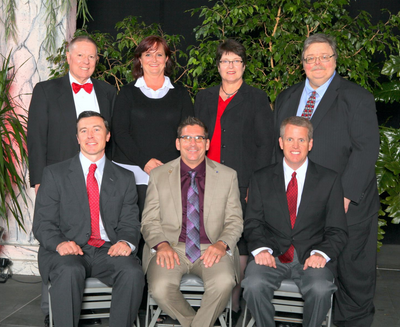Over the last few weeks you may have seen the latest advertisements from the J.A and Kathryn Albertson Family Foundation’s “Don’t Fail Idaho” campaign. The most controversial claim is that four out of five Idaho students are not prepared for life after high school.
Let’s be clear; this campaign promotes an agenda designed to undermine public schools. It is highly inaccurate. It offers no real solutions to increasing post-secondary readiness. It is a disservice to the work public school teachers, parents, and students do every day.

Why would someone want to undermine public education in Idaho? The motive is simple. At a recent Downtown Rotary Club meeting, the executive director of the Albertson Foundation stated that the goal of the Foundation is to increase charter school seats by 20,000 in the next few years. That will only happen if Idahoans lose faith in their public schools.
Unfortunately, the Foundation’s data have been spun to create the illusion that 80 percent of Idaho’s high school graduates are not prepared for college. The source of the data is the 2014 SAT test, administered to juniors in Idaho’s high schools in April. The criteria used by the Foundation? A score of 500 on each of the 3 sections of the test, and an overall score of 1550, adopted by the Idaho Board of Education as an indicator of college success.
The creator of the SAT indicated that achieving this score provides a 66 percent chance that a freshman will achieve a grade average of B minus in the first semester at a four-year college. While this may be one predictor of success in college, it clearly does not reflect other factors that are better predictors, such as high school grades, experience in Dual Credit and Advanced Placement courses, and enrollment and success in Professional Technical coursework, such as welding or auto body.
In fact, among members of the Boise District high school graduating class of 2009 who have graduated from college, nearly 40 percent did not achieve the benchmark when they took the SAT or its competitor, the ACT. The Foundation would have you believe that those are the very students who are not prepared.
Additionally, we know that only 1 in 10 Boise District students entering Boise State University require remediation in math and reading. This is direct evidence that the vast majority of district students are prepared for college — and that’s due to the tremendous work done by our staff, parents, and students.
The Foundation is out of touch with where Idaho is going. For the first time in nearly a decade, the governor, state superintendent, the Legislature, school boards, school administrators and teachers are working together to build up our public education system, funding schools more properly, making teacher salaries more competitive, and emphasizing college and career preparedness in order to improve the economy and develop a more educated citizenry. If the Albertson Foundation does not want to partner in this vision, at the very least, they should not stand in the way of Idaho’s progress.
In spite of the disheartening rhetoric, we know that the community supports and recognizes the work that teachers do daily to prepare our students. We will continue to oppose any effort to undermine their dedication, our students’ successes and the role public schools play in creating a vibrant and prosperous community and state.
This column was authored by Superintendent Don Coberly and all seven Boise School District board members: Nancy Gregory, Maria Greeley, A.J. Balukoff, Dave Wagers, Troy Rohn, Doug Park and Brian Cronin.
Disclosure: Idaho Education News and the Don’t Fail Idaho campaign are funded by the J.A. and Kathryn Albertson Family Foundation.
